Germany vaccine mandate rule inevitable, says Tourism Minister
With the head of the country’s disease response calling for “a national state of emergency,” senior politicians are considering the controversial rule.
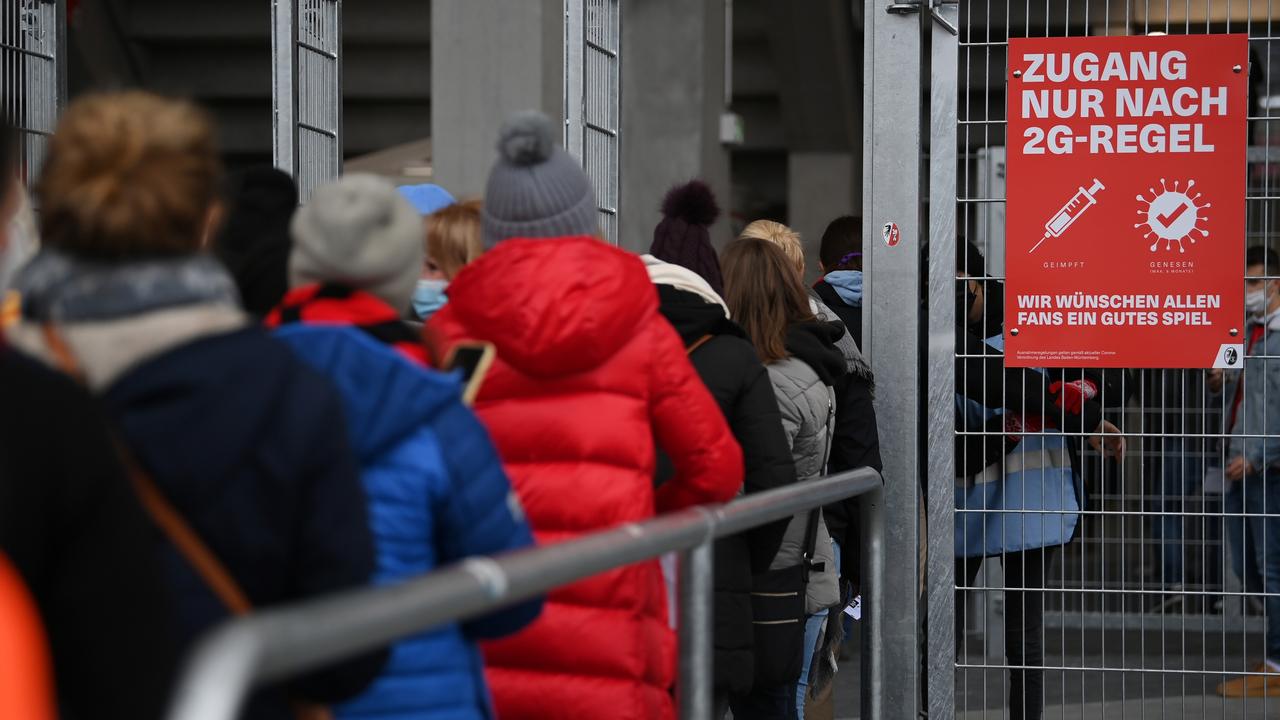
Senior politicians in Germany have said vaccine mandates are “inevitable,” as the country battles its deadly fourth wave of Covid-19.
Tourism Minister Thomas Bareiss said Germany should have implemented compulsory vaccines from the beginning of the rollout, with the new influx of cases proof that “sooner or later a compulsory vaccination is unavoidable”.
“For me it is politically no longer justifiable that entire industries, retailers, restaurants, clubs, bars and the entire cinema, cultural and event scene live in a state of crisis prescribed by the state for 20 months and are faced with great existential fears, while others … take the freedom not to vaccinate,” he said.
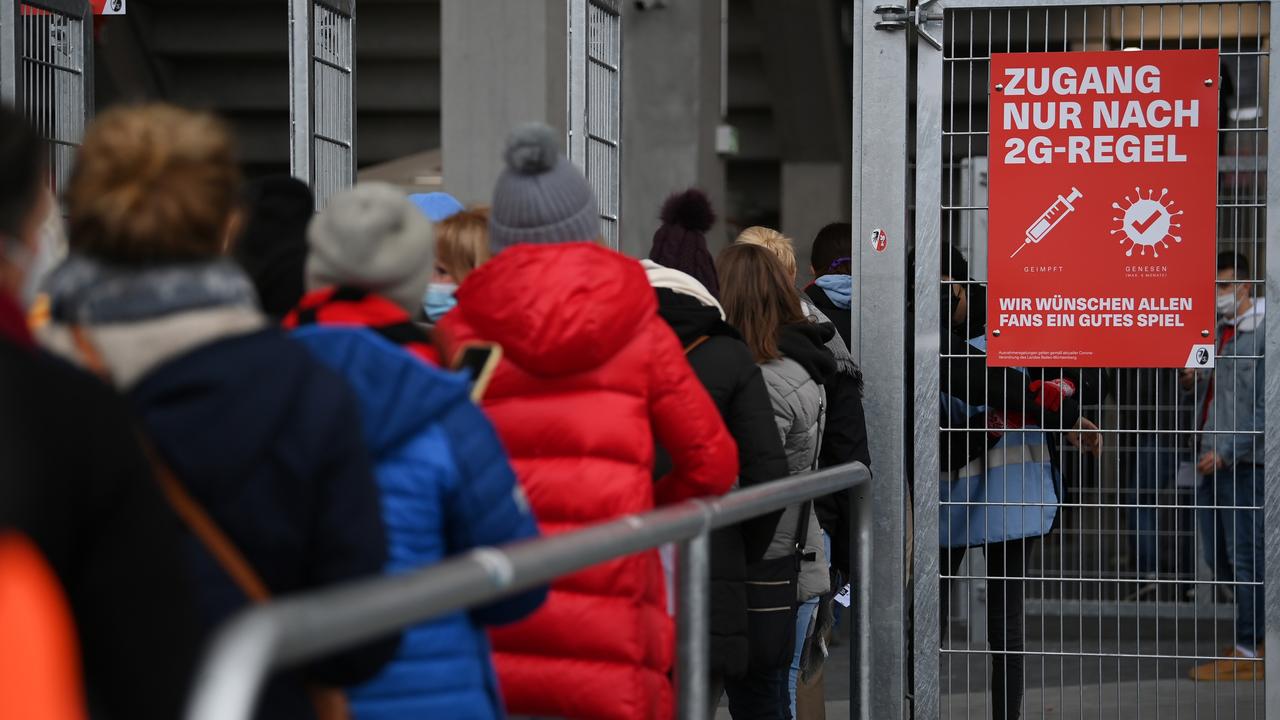
Several other senior politicians have also backed implementing a jab mandate.
High-ranking politician of the Christian Democratic Union, Tilman Kuban said a decision had to be made now.
“We’ve reached a point at which we must clearly say that we need de facto compulsory vaccination and a lockdown for the unvaccinated,” he wrote in Die Welt, a national newspaper.
Similarly, Finance Minister in Baden-Wuerttemberg, Danyal Bayaz said it would be a “mistake” for the government to rule out the requirement.
‘A national state of emergency’
Germany’s seven-day new case average has hit 48,201, with the country recording an alarming 68,366 infections on Wednesday alone. The republic’s hospital system is also close to being overwhelmed, as intensive care units reach capacity.
In response, Germany’s second most-populated state, Bavaria, has implemented a lockdown on all districts that record a seven-day rate of over 1,000 new infections per 100,000 people. The state of Saxony also initiated a curfew for unvaccinated people living in Covid hot spots.
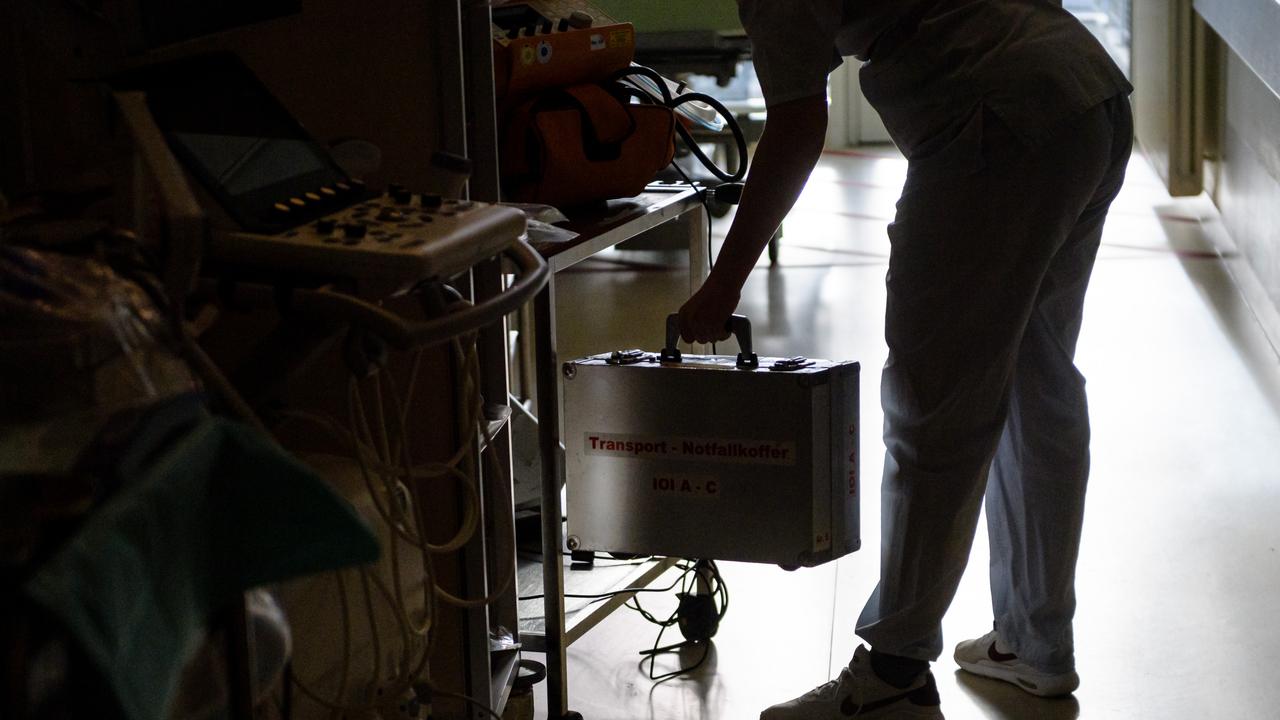
Looking at the exploding cases, the head of the Robert Koch Institute, Lothar Wieler – who has been spearheading Germany’s disease response – declared a nationwide state of emergency on Friday.
“All of Germany is one big outbreak,” said Mr Wieler to media.
“This is a nationwide state of emergency. We need to pull the emergency brake.”
Currently, around 70 per cent of the country is vaccinated, putting it behind other European like Italy, France (both 77 per cent), Belgium (76 per cent) and the United Kingdom (75 per cent).
Following in Austria’s footsteps
A similar rule has also been announced in the neighbouring country of Austria, where those who refuse to be double-vaxxed by February 1 will face heavy fines. Unvaccinated residents caught going to shops, pubs, clubs and cinemas could be slapped with a 500 euro (A$790) fine while business owners could be slugged for 3600 euros (A$5617).
This comes as the central European country recorded a pandemic high of 15,809 new Covid infections on Friday, despite daily new cases sitting under 5000 at the beginning of November.
In light of the worrying trend, Chancellor Alexander Schallenberg imposed a lockdown which would last for a maximum of 20 days, starting from Monday.
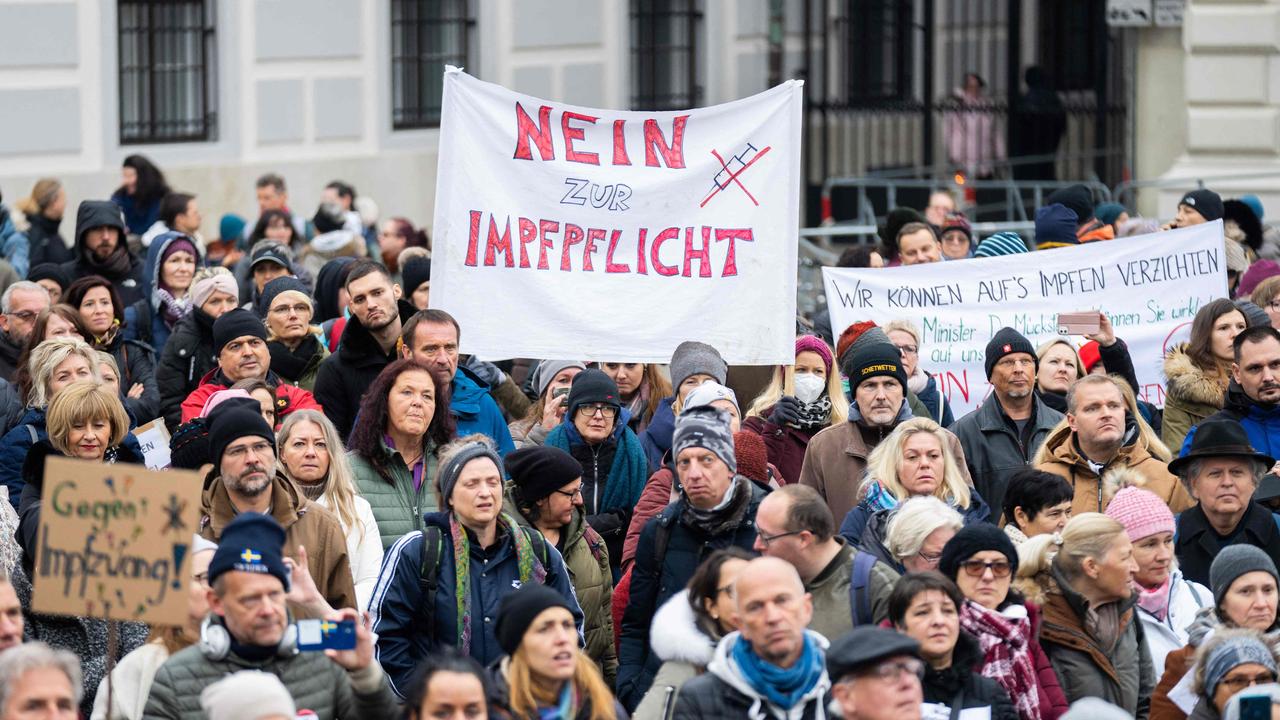
Defending his controversial decision, Mr Schallenberg said he didn’t want a ‘fifth, sixth or seventh wave’ hitting the country.
“Despite months of persuasion, we have not succeeded in convincing enough people to get vaccinated,” he said, lashing out Austrians refusing the jab.
“Whipped up by radical anti-vaxxers, by fake news, too many among us didn’t get vaccinated. The results are overcrowded intensive care units and enormous suffering.”
Anti-vaxxers revolt against health measures
While more governments are considering mandatory vaccination measures, this has sparked immense pushback from those who oppose the health rules.
Over the weekend tens of thousands of demonstrators gathered in Austria, Croatia, Italy, Northern Ireland, the French territory of Guadeloupe and the Netherlands to protest the vaccine rules and looming lockdowns.
Scenes in Rotterdam, a port city in the Netherlands, were described as a “war zone,” with violent demonstrators throwing rocks, setting off fireworks and alighting police cars on fire.
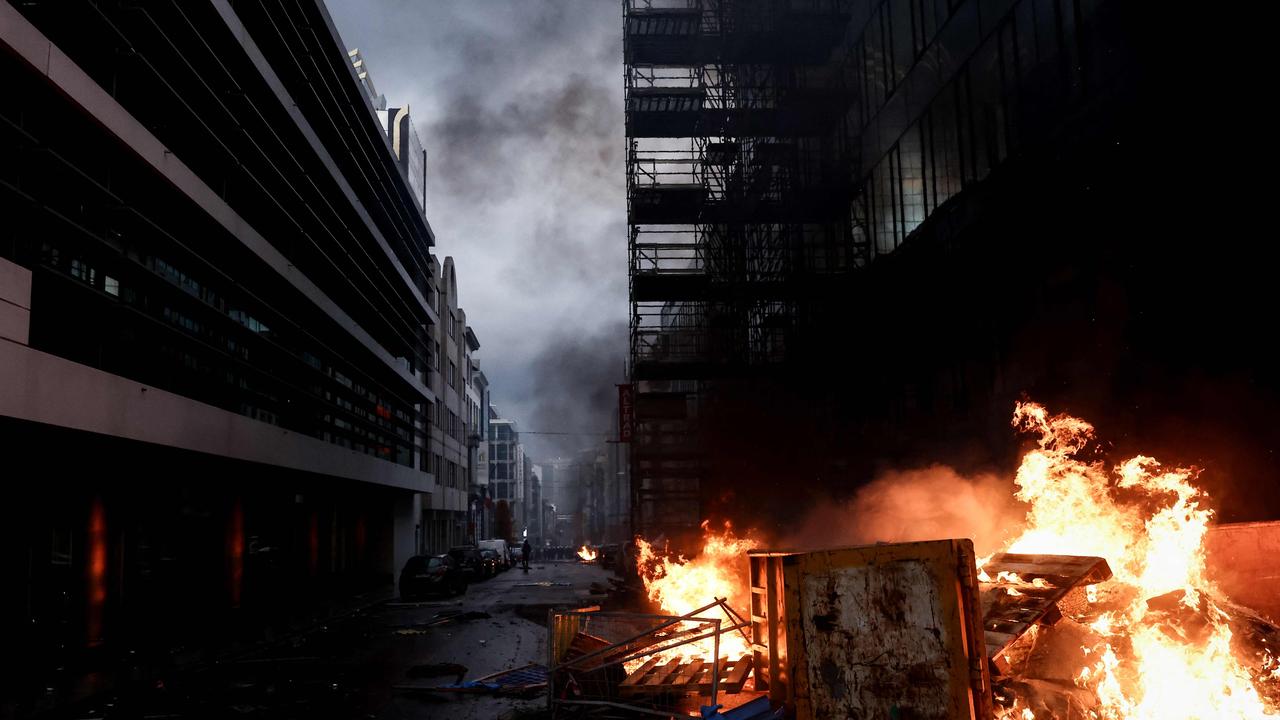
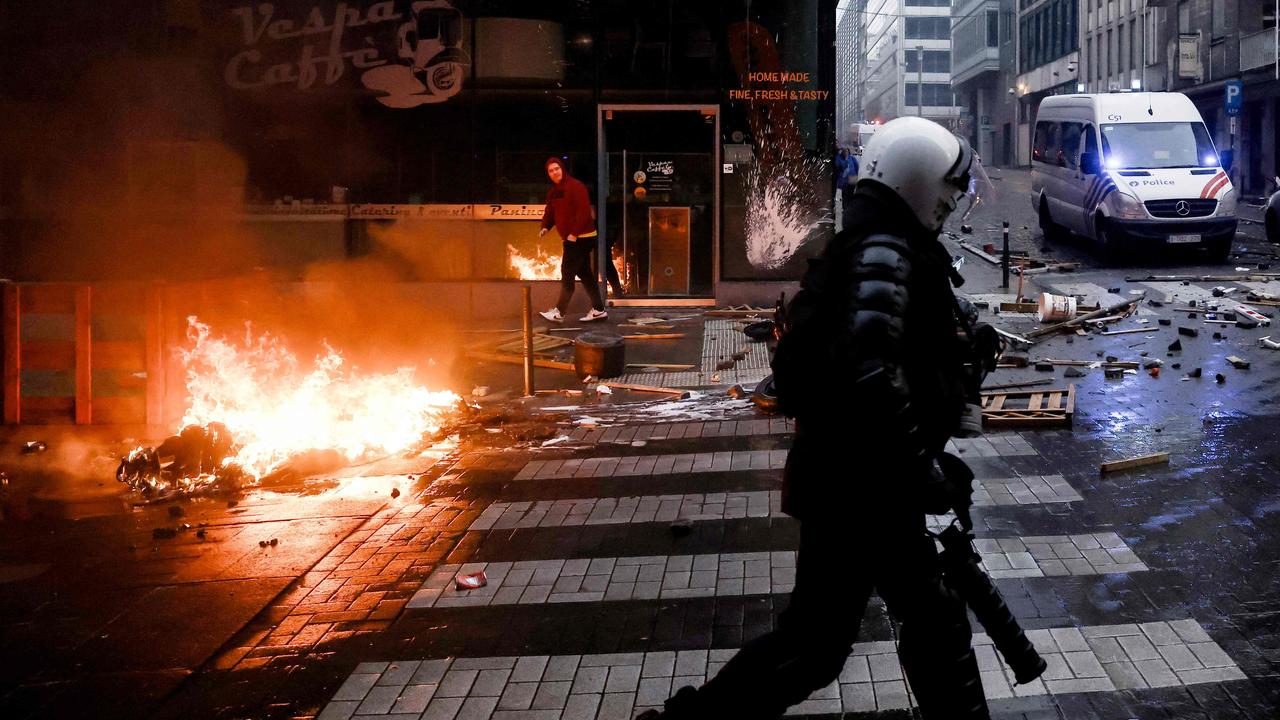
Although police attempted to quell the dissenters with water cannons and warning shots, four rioters were wounded and taken to hospital. Dutch authorities also reported 51 arrests were made with half of them under 18.
“The centre of our beautiful city has this evening transformed into a war zone,” read a tweet from local political party Leefbaar Rotterdam. “Rotterdam is a city where you can disagree with things that happen but violence is never, never the solution.”
Similar scenes also unfolded in Brussels, Belgium where police say around 35,000 people took part. According to reports from AFP, at least two police were injured during the demonstrations, with protesters seen carrying Flemish nationalist flags and Nazi-era yellow stars.
Footage on social media also showed demonstrators throwing projectiles at police and chanting “together for freedom”.






